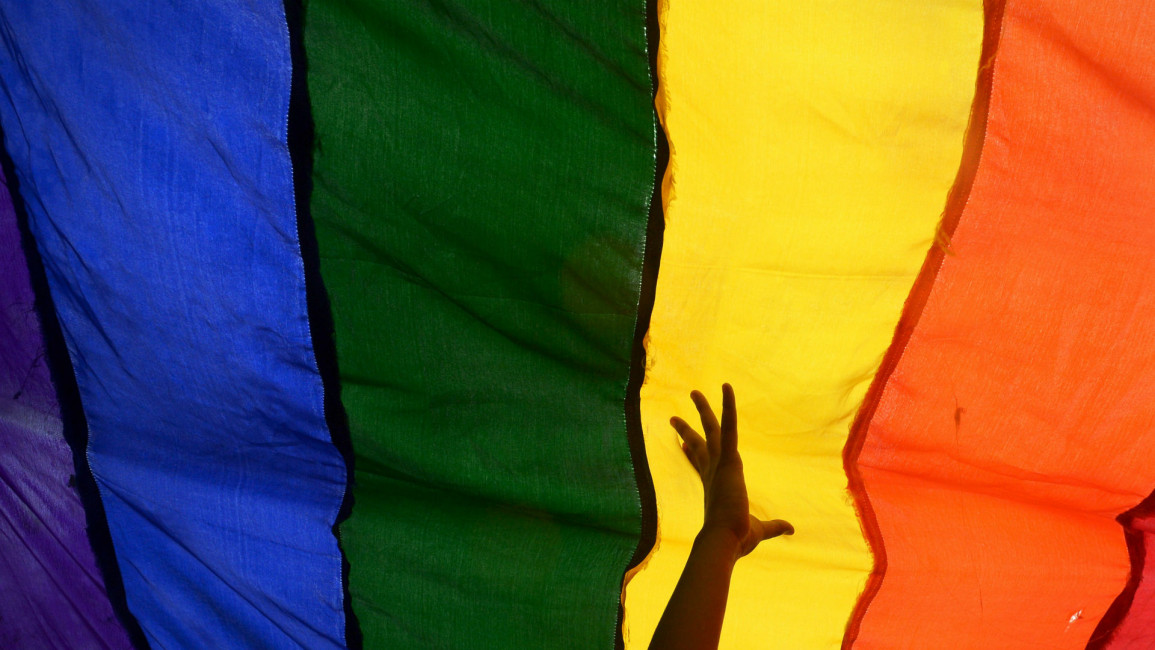Arab LGBT+ groups ramp up community support under coronavirus restrictions
Providing services such as phone counselling and emergency deliveries of HIV medication, the organisations say the coronavirus restrictions are putting LGBT+ people at risk.
Countries across the Middle East and North Africa are generally intolerant towards its LGBT+ community, who are often subjected to social prejudice and illegality.
"The environment we live in unfortunately can be aggressive toward LGBT+ people," Omar Al Khatib of the Jerusalem-based Palestinian LGBT+ group alQaws told the Thomson Reuters Foundation.
"Staying at home can eliminate their access to private spaces and increase bullying," he added.
Efforts to stop COVID-19's spread close off public spaces like coffee shops and clubs, which usually serve as a refuge from the pressure at home faced by LGBT+ Middle Easterners.
Al Khatib said businesses shuttering have also worried LGBT+ people who live alone due to rejection from their families.
"The state of quarantine creates a feeling of isolation and fear, and that they are completely on their own so it's not safe for them," Al Khatib told the Thomson Reuters Foundation.
His group urged those who felt lonely and anxious to call its hotline, which is open on Wednesday and Sunday evenings.
The hotline usually receives about 500 calls a year, with noticeable spikes during times of crisis, alQaws reported.
In Lebanon, the first Arab country to host Pride in 2017, advocacy group Proud Lebanon has mobilised volunteers to deliver medicine to HIV-positive people who cannot leave their homes.
"They are afraid to come take their medication," the organisation's director Bertho Makso told the Thomson Reuters Foundation.
Lebanon has reported around 130 coronavirus cases.
In Tunisia, the LGBT+ group Mawjoudin had to stop its face-to-face counselling services and closed the common room at its centre in the capital Tunis, where people usually spend their free time or socialise in a safe setting.
Calls to Mawjoudin's hotline have increased in recent weeks, an LGBT+ activist told the Thomson Reuters Foundation.
"They have been expressing their frustration," she said.
"When they go out alone, they have the freedom to not lie anymore to their families and now they don't have it."
Gay sex is punishable by up to three years in prison in Tunisia. The country's first openly gay presidential candidate had to flee due to Islamist death threats.
Tunisia has recorded about 30 COVID-19 cases, with authorities closing cafes in the afternoon and suspending cultural, fitness and economic gatherings.
Follow us on Twitter and Instagram to stay connected.


![President Pezeshkian has denounced Israel's attacks on Lebanon [Getty]](/sites/default/files/styles/image_684x385/public/2173482924.jpeg?h=a5f2f23a&itok=q3evVtko)



 Follow the Middle East's top stories in English at The New Arab on Google News
Follow the Middle East's top stories in English at The New Arab on Google News


